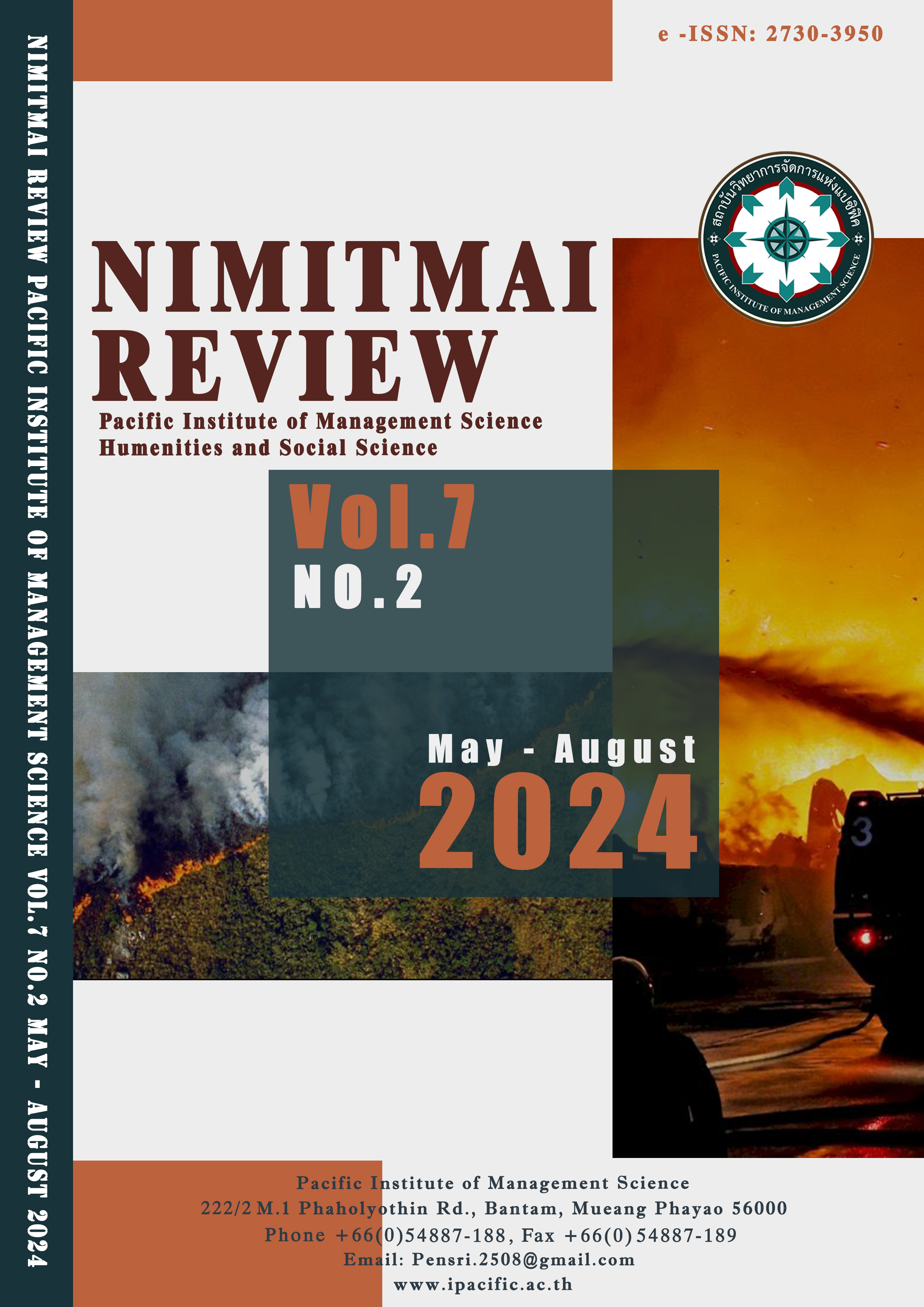Impact of Interpersonal Trust on The Creative Behaviour of Employees in The Chinese Banking Industry: A Mediate of Knowledge Sharing and Moderation of Creative Self-efficacy
Keywords:
social innovation, perceived values, creative tourismAbstract
Innovation drives social development, and employees' creative behaviour is the endogenous power of innovation. Innovation is the result of the exchange of ideas and the knowledge-sharing process of interpersonal trust, which leads to new ideas and methods. Some employees have a high sense of creative self-efficacy and are more likely to behave innovatively and more frequently. Banks, as large financial institutions, rely on innovation for their growth and the knowledge management systems they have in place to enable more efficient knowledge sharing provide a good basis for the emergence of employees' creative behaviour. Interpersonal trust among employees is considered to be an important influencing factor in the occurrence of employees' creative behaviour, and the influencing institutions involved are worth exploring. This study attempts to understand interpersonal trust, knowledge sharing, employees' creative behaviour, and creative self-efficacy, and to explore the intrinsic links between them. This was supported theoretically through extensive literature research and the establishment of viable scales. After collecting 500 valid questionnaires, quantitative analyses and tests were conducted using SPSS and AMOS. The study found that interpersonal trust has a positive impact on employees' creative behaviour, and that knowledge sharing mediates the mechanism by which interpersonal trust influences employees' creative behaviour. In addition, creative self-efficacy has a positive moderating role in this mechanism. These results, on the one hand, enrich the research on the issue of employee innovativeness behaviour, especially by considering both intermediate and moderating variables, and on the other hand, provide feasible suggestions for the development of bank innovation in terms of human resource management.
References
Amabile, T. M. (1988). Creativity and innovation patterns in organizations. Research in Organizational Behavior, 10(1), 123-167.
Amabile, T. M., Conti, R., Coon, H., Lazenby, J., & Herron, M. (1996). Assessing creativity in the work environment. Journal of the Academy of Management, 39(5), 1154-1184.
Farmer, S. M., & Tierney, P. (2017). Considering creative self-efficacy: Its current state and ideas for future investigations. in The creative self (pp. 23-47). Academic Press.
Ganguly, A., Talukdar, A., & Chatterjee, D. (2019). Assessing the role of social capital, tacit knowledge sharing, knowledge quality and reciprocity in determining organizational innovation capacity.Journal of knowledge management.
He Qianlong. (2005). Factors influencing sample size determination in market surveys. Statistics and Decision Making, (2), 28-29.
Hülsheger, U. R., Anderson, N., & Salgado, J. F. (2009). Team-level predictors of innovation at work: a comprehensive meta-analysis of research spanning three decades. Journal of Applied Psychology, 94(5), 1128.
Jian, H. & Jinxin. H. (2019). Evaluation of the coupling relationship between regional science and technology innovation and high quality economic development in China. Science and Technology Progress and Countermeasures, 36(8), 19-27.
Le, P. B., & Lei, H. (2018). The mediating role of trust in facilitating the relationship between transformational leadership and knowledge sharing processes.Journal of Knowledge Management, 22(3), 521-537.
Li, X. Y., Liu, H. H., & Chen, B. B.. (2017). Individual-supervisor deep similarity perceptions and employee innovation behavior: A test of two mediating effects. Science and Technology Progress and Countermeasures, 34(18), 146-152.
Li Ye, & Tu Yuejun. (2018). Research on the mechanism of relationship strength on employees' innovation performance. Soft Science, 32(9), 80-83.
Li, M., & Hsu, C. H. (2018). Customer engagement in service and employee innovation behavior: The mediating role of interpersonal trust. International Journal of Contemporary Hospitality Management, 30(4), 2112-2131.
Liu, D., Jiang, K., Shalley, C. E., Keem, S., & Zhou, J. (2016). Motivational mechanisms for employee creativity: A meta-analytic examination and theoretical extension of the creativity literature.Organizational Behavior and Human Decision Processes, 137, 236-263.
Mohammed, N., & Kamalanabhan, T. J. (2020). Interpersonal trust and employee knowledge sharing behavior: Creative expression as an outcome. vine Journal of Information and Knowledge Management Systems, 50(1), 94-116.
Obeidat, B. Y., Al-Suradi, M. M., Masa'deh, R. E., & Tarhini, A. (2016). The impact of knowledge management on innovation: An empirical study of Jordanian consulting firms. Management Research Review, 39(10), 1214-1238.
Rungsithong, R., & Meyer, K. E. (2020). Trust and knowledge sharing in context: A study of international buyer-supplier relationships in Thailand. Industrial Marketing Management, 88, 112-124.
Sun, Qixiang, & Zhou, Xinfa. (2020). Science and technology innovation and high-quality economic development. Journal of Peking University (Philosophical and Social Sciences Edition), 57(3), 140-149.
Sosa, M. E. (2011). Where do creative interactions come from? The role of tie content and social networks. Organization Science, 22(1), 1-21.
Shao, Z. Q. (2013). Global structural instability of Riemann solutions of general quasi-hyperbolic conservation law systems under small BV perturbations of initial data: shocks and contact discontinuities. ima Journal of Applied Mathematics, 78(6), 1318-1355.
Wang, P., Zhu, F.W., Song, H.Y., & Bao, X.N.. (2019). Interpersonal trust and knowledge hiding behavior: The joint regulation of personal reputation concern and uncertainty perception. Management Review, (1), 155-170.
Downloads
Published
How to Cite
Issue
Section
License
Copyright (c) 2024 Nimitmai Review Journal

This work is licensed under a Creative Commons Attribution-NonCommercial-NoDerivatives 4.0 International License.



